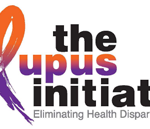
Last December, I promised that in 2011, the ACR would focus on promoting the needs of the profession, our membership, and especially our patients. I encouraged us to “stay strategic” in taking advantage of opportunities as they appeared in these rapidly changing times. In subsequent columns, I suggested that, to advance rheumatology, we should be proactive in meeting the needs of our profession and our patients.
This month I bring to your attention one of our newer programs.
When given the opportunity to increase education around an important rheumatologic disorder, the ACR came forward to offer its expertise. The Lupus Initiative has been a vivid example of the ACR’s strategic thinking over the past year and its proactive approach to advancing both patient care and the profession of rheumatology.
The Formation of The Lupus Initiative
In 2009, the Department of Health and Human Services (HHS) solicited applications and chose the ACR to lead an educational effort aimed at eliminating ethnic, racial, and gender disparities in the diagnosis and treatment of lupus. The ACR created The Lupus Initiative to further that effort.
The goal of the Initiative is to develop and disseminate innovative lupus curricula and other teaching resources for physicians and health professionals in training and in practice. The staff, led by Lisa Amaker, has developed an infrastructure, researched the viability of resource options, and organized the development and review of a variety of educational materials concerning lupus.
Since its inception, the Initiative has been guided by a national consortium of experts in lupus and health disparities from academia, research, patient services, and the federal government. The consortium is chaired by ACR volunteer Sam Lim, MD, MPH, who is supported in this role by more than 30 ACR members who contribute considerable time, in addition to their expertise, to ensure the success the project.
The ACR finalized the first sets of materials this year. As of this month, they are available for widespread use and distribution.
I am especially pleased to announce that, just last month, The Lupus Initiative received a third year of funding from the HHS Office of Minority Health. Plans for the third year funding will focus on
- The dissemination, implementation, and evaluation of our curriculum in medical and health professions schools;
- The creation of a think tank–style summit on the reduction of health disparities; and
- The development of publications about this unique cooperative effort between public and private institutions, academic centers, research and public health groups, and national nonprofit organizations.
I am especially pleased to announce that, just last month, The Lupus Initiative received a third year of funding from the HHS Office of Minority Health.
Improve Practice at the Site of Patient Care
The Lupus Initiative’s resources for clinical practice and the classroom are designed to assist nonrheumatologists and fellows-in-training in making timely differential diagnoses; encourage appropriate referrals to rheumatologists; and educate about supportive, team-based patient care.
Resources The Lupus Initiative has developed include:
- A DVD suitable for viewing in patient waiting rooms;
- Five short teaching videos for medical students that include well-known rheumatologists explaining clinical concerns illustrated by patients who describe related adherence and quality-of-life issues associated with lupus; and
- Case studies that reinforce student and practitioner knowledge about the medical complexities of lupus and socioeconomic and cultural factors that must be considered in order to provide more effective patient care.

Strategically Advancing Rheumatology
The Lupus Initiative supports the vision, mission, and core values identified in the ACR 2010–2012 strategic plan by highlighting the profession’s relevance—in this case, in the national movement toward health equity—and advancing the goal of sustainability.
The launch of The Lupus Initiative’s resources is timely because of recent advances in lupus treatment. Earlier this year, the U.S. Food and Drug Administration (FDA) approved belimumab. In early 2012, the ACR will publish its lupus nephritis guidelines. While discussion about the efficacy of belimumab and other treatments can be, as described by The Rheumatologist’s editor, David S. Pisetsky, MD, PhD, in “Rheuminations” (August 2011, p. 9), “intense occasions, filled with opinion, argument, and contention,” the fact is that for the first time in decades, there is discussion that reaches beyond an inner circle of lupologists. The Initiative has provided a vehicle for translating some of that discussion and data into usable information for practitioners and trainees who are not in the now larger, but still inner, circle of discussion. Simply put, The Lupus Initiative demonstrates the relevance of our profession to a broader audience.
One of the truly unique features of The Lupus Initiative is its broad circle of collaborations and partnerships. The Lupus Initiative is inclusive of physicians and health professionals and encompasses both private practice and academia. In meaningful ways, it brings together private, public, and nonprofit entities as well as lupus experts and those well versed in cultural competency, disparities research, and patient awareness. Together, they design multifaceted ways to address lupus disparities and ensure that appropriate messages and education about lupus are delivered in the most effective way. These collaborations improve the profession’s visibility among numerous stakeholders.
The Initiative will also have a positive effect on developing future generations of rheumatology health professionals. One feature of sustainability is ensuring an adequate and competent workforce. Not only does The Lupus Initiative improve competency among nonrheumatologists, but it also provides opportunity and experience for junior rheumatology professionals. A new cadre of younger rheumatology academicians and lupus professionals are dedicating time and effort to the Initiative, benefitting from the guidance and mentorship of senior rheumatologists, and getting due credit for their role in creating a curriculum and other resources for a national audience.
Agility in Response to the Changing Healthcare Environment
On some points, anticipating changes to come in the healthcare environment requires educated guesswork, but the assertion that the world is getting smaller requires no inference. The population of racial and ethnic minority patients is increasing and The Lupus Initiative positions the ACR to be a leader in health-equity thinking and practice.
Through The Lupus Initiative, we are proactively serving our patients by focusing on health-equity issues that impact their care. Simultaneously, we are underscoring the relevance of our expertise in managing the health equity–related subtleties that are sure to emerge in these changing times.
For more information about The Lupus Initiative, please visit www.thelupusinitiative.org.
Dr. Borenstein is clinical professor of medicine in the division of rheumatology at George Washington University Medical Center, in Washington, D.C., and in private practice at Arthritis and Rheumatism Associates there. Contact him via e-mail at [email protected].


